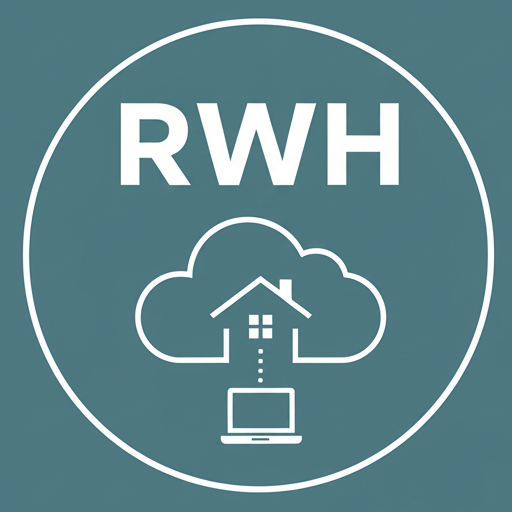
Introduction
Remote work was sold as freedom. What we got was something else entirely: digital isolation, time distortion, and a slow erosion of mental clarity. You’re still in bed by 11, still “working,” still showing up to Zoom calls—but somehow, you feel like you haven’t existed all week.
This isn’t normal stress. It’s not even traditional burnout. It’s a quieter kind of breakdown. And it’s eating people alive from behind their screens.
The Slow Fade Into Mental Fog
You’re not collapsing. You’re not crying. You’re just… gone. The lights are on but nobody’s home. Tasks blur together. Words stop making sense. Your mind runs loops but never lands anywhere.
This is what remote work burnout actually looks like for a lot of people—not drama, but dissociation. You don’t even know you’re drowning until you try to focus and realize your thoughts are smeared across five browser tabs and half a sentence in Slack.
If you wake up tired, stay tired, and feel wired but drained—your body’s not lazy. It’s trying to survive with no fuel and no reset. This kind of survival-mode fatigue hits harder than most people admit.
It’s death by a thousand pings.
Why This Is Happening
Remote work removed the guardrails. No commute to switch gears. No hallway talk to break up your day. No lunch walk to reset your brain. Just an endless blur of screen, snack, scroll, repeat.
Without transitions, your brain never fully resets. It stays in a shallow state of always-on, always-waiting, never recovering. And over time, that slow-drip tension leads to mental collapse.
When home stops feeling like home, it’s not just a boundary problem—it’s a mental health problem that creeps in quietly. It’s the same trap that turns your safe space into your stress cage.
If you feel constantly tired but never rested, constantly busy but never productive—this is why.
Add in the mental clutter that never clears—something psychologists call cognitive residue—and you’ve got a recipe for long-term fragmentation. Even when you’re off the clock, your brain keeps spinning through Slack messages, half-written emails, and internal noise you can’t shut off. You’re technically “done,” but not mentally free.
And while butterflies-and-rainbows productivity gurus will tell you to light a candle, journal your feelings, and redesign your workspace—you and I both know that’s an ideal-world solution. Great when your nervous system isn’t already on fire. But in the real world? We need fallback systems that work even when our willpower doesn’t.
You Don’t Need a System. You Need a Survival Protocol.
This isn’t the time for another productivity app or a color-coded Notion page. This is survival. When your brain is fried and you’re slipping into fog, you need fallback protocols that are simple, dumb, and non-negotiable.
The Remote Work Survival Protocol (CAS edition):
- Stand up every 60 minutes. Even if it’s just to touch a wall.
- Drink water every 90 minutes. Caffeine is not hydration.
- Shut your laptop for 10 minutes mid-day. No screens. No guilt.
- Speak out loud once a day. Not to AI. To a real person.
- Hard shutdown time. No gray area. Power down and leave the room.
These aren’t habits. They’re exits from the loop.
In survival mode, momentum matters more than motivation. You’re not building a dream. You’re crawling your way out of fog, one micro-win at a time.
What Survival Looks Like in Practice
Some days, survival means clearing your inbox. Some days, it means answering one message and logging out.
Some days, it’s pacing around your room while pretending to brainstorm. It’s stretching in the kitchen while your brain resets. It’s stepping outside, even if it’s just to touch grass and come back in.
And some days, survival looks like nothing at all. You sit there. You stare. You try not to cry. You close your laptop and feel guilt instead of relief. That’s part of the process too. You’re not lazy. You’re not weak. You’re recovering.
You won’t always have focus. You won’t always have clarity. But you can still protect your last sliver of willpower with simple acts of exit.
If you’re in the deep fog, you’re not building a business or chasing dreams. You’re trying to stay human. The goal isn’t performance. It’s preservation.
Your nervous system is not designed to run 12 browser tabs deep, 7 days a week, without pause. Eventually, it snaps. But it doesn’t have to.
Final Thought: This Isn’t Laziness. It’s Damage Control.
If remote work is breaking your brain, you’re not broken. You’re just unprotected. This isn’t about willpower. It’s about warfare—mental survival in a setup that was never designed to keep you whole.
You don’t need to optimize this. You need to escape it. You don’t need to be your best self right now—you need to protect what’s left.
Don’t wait for the crash. Build exits now. Touch reality. Speak words. Leave the room.
You can still work remote. Just not like this.

Pingback: How Idea Incubation Actually Works for Remote Workers